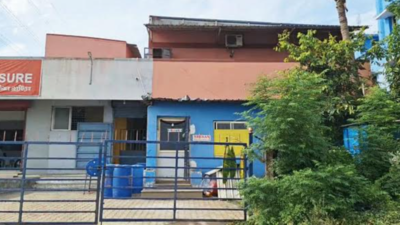CHENNAI: For 14 years, Sresan Pharmaceutical, the manufacturer of toxic Coldrif cough syrup that has been blamed for the deaths of 17 children in Madhya Pradesh, operated unchecked from a dingy building in Kancheepuram, Tamil Nadu, even as drugs were manufactured in patently unhygienic conditions with no proper facilities and zero adherence to rules.It took the fatalities in MP’s Chhindwara district for the TN drug authorities to finally wake up and inspect the manufacturing unit, which held a licence since 2011, and subsequently seal the premises.The inspection, carried out a day after receiving a letter from MP’s drug controller, confirmed 364 critical and major violations at every stage — right from sourcing raw materials to drug making, testing and packing.On Oct 3, TN’s deputy director of drugs control S Gurubarathi, who is the licensing and controlling authority in the state, directed the pharma firm to halt the manufacture, sale and distribution of drugs, after lab test revealed the Coldrif solution manufactured in the unit contained 48.6% diethylene glycol, an industrial chemical that causes acute renal failure when ingested.Sriperumbudur drug control inspector Manimegalai issued a show-cause notice to the company on Tuesday afternoon. The company has been called upon to provide a detailed explanation for the discrepancies in the medicine’s quality and labelling. A police team from MP reached Chennai on Tuesday evening and are likely to visit the facility on Wednesday morning to conduct a detailed probe.A release from the TN directorate of drugs control said despite Oct 1 and Oct 2 being public holidays, the inspection of the manufacturing facility was begun just hours after receiving MP’s request on Oct 1. The entire investigation, including inspection, sampling, analysis of the syrup and stopping production, was completed within two days, it added.Senior drug inspectors P Nithin Kumar in Kancheepuram and R Sasikumar in Tiruvallur inspected the premises, and found that the company purchased a non-pharmaceutical grade of propylene glycol, a raw material for manufacture of drugs, but there was no invoice for the purchase. Four other syrups manufactured with propylene glycol as an excipient were found to be safe.The drug inspectors stated in their report that medicines in the unit were stored under “unhygienic conditions” — placed in corridors, and filled, labelled and dedusted in areas without air handling units. There were no pest control measures, purified water generation system or cleaning procedures in place. Equipment in the unit was rusty, cracked and leaking.Many other violations, including the risk of contamination, were listed in the 20-page report.While a case against Sresan Pharma’s proprietor, G Ranganathan, has been filed by MP govt, TN health department is yet to initiate action against the drug inspectors who permitted the unit to produce drugs in such unsafe conditions.“If they could list so many issues after a single inspection, why was the unit allowed to function?” asked former state drug controller M Bhaskaran.The Drugs and Cosmetics Rules mandate inspectors to inspect manufacturing units within their area at least once a year to ensure that the licence conditions and provisions of the Act and rules are strictly adhered to.A chemist himself, Ranganathan had established the company in the 90s. The state drugs control department said there were no cases pending against him. Bhaskaran says that’s because “no one kept track or inspected the premises.”He cited two reasons why Sresan should have been under constant scrutiny. In the late 80s, the drugs control department had booked Ranganathan for selling a syrup used to treat anaemia under the ‘food supplements’ category. He did not have a valid drug licence either.Secondly, the national regulator, Central Drugs Standard Control Organisation, had warned states about improper use of propylene glycol. The primary risk in syrup manufacturing is using contaminated propylene glycol in the presence of diethylene glycol or ethylene glycol, which can cause organ failure and death, particularly in children.Experts say action must be taken against senior drug inspectors; had they done their duty properly, the children in Chhindwara would probably not have lost their lives.

